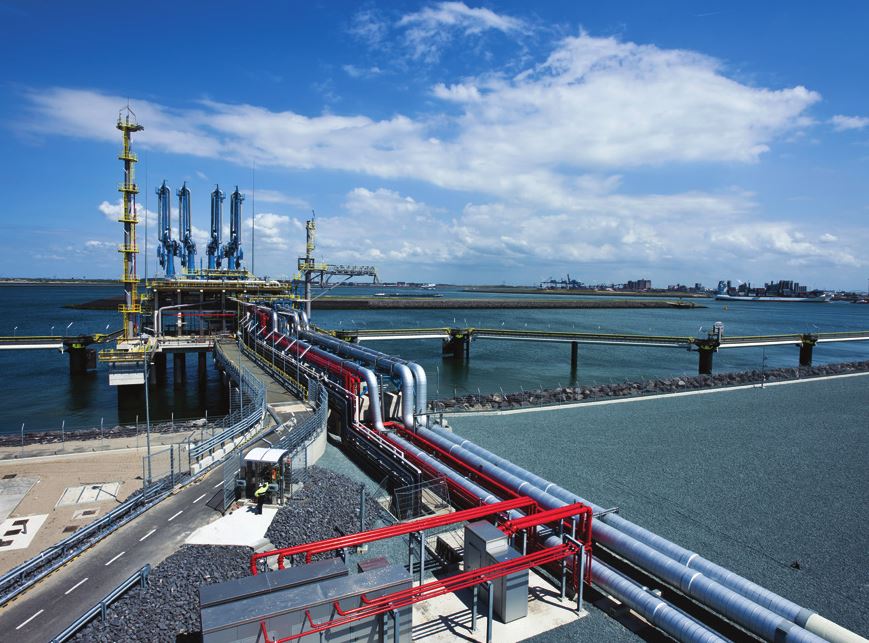Dutch gas transmission network operator Gasunie has revealed additional information regarding its plans to boost LNG import capacity in the European country.
A Gasunie spokeswoman told LNG Prime recently that the firm was working to further boost the regasification capacity in the Netherlands besides the Gate LNG terminal in Rotterdam and the FSRU-based facility in Eemshaven.
Gasunie owns the Gate terminal along with Vopak. The facility, one of Europe’s main LNG hubs, received a permit in September to add the fourth tank and boost regasification capacity up to 20 bcm per year. The terminal is currently capable to regasify about 16 bcm per year.
Besides Gate, Gasunie also started delivering LNG from the new Eemshaven LNG hub with a capacity of 8 bcm in September. This facility features two chartered FSRUs, namely Exmar’s 26,000-cbm barge-based FSRU Eemshaven LNG and the 170,000-cbm Energos Igloo, owned by a joint venture of asset manager Apollo and US LNG firm NFE.
Terneuzen
Gasunie is now studying to further expand the existing LNG facilities in Eemshaven and in Rotterdam on the basis of technical optimizations, the firm said in a statement on Monday.
“In addition, one or more new (floating) LNG terminals will have to ensure a sufficient supply of gas next year as well. For this, the port of Terneuzen is currently in the picture,” it said.
This study is taking place after consultation with the Dutch Ministry of Economic Affairs and Climate and fits in with the plans climate minister Rob Jetten sent to the Lower House on December 9, Gasunie said.
No gas shortage, prices jump
Gasunie said there would be no physical gas shortages in the Netherlands this winter.
“Prices are high, however, and this is because there is still a structural scarcity in north-western Europe. The consequences of this lead to a price driving effect in our market area,” the firm said.
The pressure on prices can be eased by saving energy, expanding LNG import capacity in the Netherlands and accelerating the energy transition, according to Gasunie.
Gasunie is therefore working, for example, in close cooperation with the Dutch government, to build a national hydrogen network.
However, hydrogen cannot yet replace the demand for natural gas for the next two to three years, the firm noted.
Energy saving remains important but figures show that Dutch households and companies are already doing so substantially due to high prices, it said.
Further expansion of import capacity until winter 2025/2026
“For the short term, realizing additional LNG import capacity is therefore the most appropriate approach to stabilize prices on the gas market,” Gasunie said.
The additional LNG coming in through the Netherlands reduces supply scarcity and could thus contribute to lowering gas prices.
To pursue a decrease in this gas price, Gasunie said it is looking at a temporary further expansion of import capacity until winter 2025/2026.
“These are measures that can be deployed as early as next winter (2023/2024) and preferably before the gas storage filling season starts (April 2023),” it said.
“Gasunie wants to realize this expansion on a temporary basis because of the importance of the transition to a sustainable energy supply. The intention is to use as many parts of the temporary installations as possible for hydrogen transport after a few years,” the company said.

